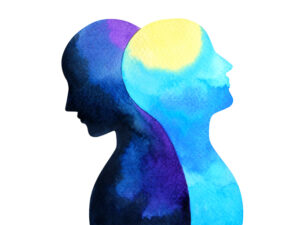
About 44% of people in jail and 37% of people in prison have a mental illness. In addition, 63% of people in jail and 58% of people in prison have a substance use disorder. Yet, support is often lacking for this population.
This was the topic of discussion on a recent panel of behavioral health experts at the Behavioral Health Tech 2023 conference in Phoenix. When asked what the healthcare industry should know about the intersection between the justice system and mental health, one panelist said that numerous players work with the incarcerated population and there needs to be better collaboration.

With the Rise of AI, What IP Disputes in Healthcare Are Likely to Emerge?
Munck Wilson Mandala Partner Greg Howison shared his perspective on some of the legal ramifications around AI, IP, connected devices and the data they generate, in response to emailed questions.
“There are so many organizations — city-based, state-based, nationally-based — that are assisting this community,” said Darren Webb, CEO of Mindset, which helps those with mental illness and their caregivers apply for Social Security Disability benefits. “We’ve gone to partner with jails and we wouldn’t even know that there are 10 other organizations that are helping. I think what would help is if there’s more communication, not being siloed when you do these partnerships.”
Johnnie Gasper, director of justice and crisis systems at Arizona Complete Health, added that there needs to be a better focus on getting patients to care that is less “restrictive and clinically appropriate.” Arizona Complete Health offers health insurance plans, including Medicare, Marketplace and Medicaid plans.
“If I’m a first responder and I can drop someone at an observation unit and it takes me 10 minutes versus booking them and that takes me an hour, why wouldn’t I do that?” Gasper said. “It’s great for me, it’s more clinically appropriate for that member. It’s less restrictive from a cost [perspective]. If I put my health plan hat on here, it’s better for me as well. They’re going to get the level of care that they need. They’re not going to an emergency department. They’re not going directly to an inpatient unit.”
Katherine Nisbet, chief clinical officer of New Freedom, said that she wished more people understood that with the incarcerated population, “you get to see the most amount of change you could ever imagine.” New Freedom is a mental health organization that focuses on those reentering society from incarceration and substance use. She added that this population is willing to be more vulnerable with their behavioral health when “they feel the most acceptance, love and trust from their provider.”
Another panelist — Hamilton Baiden, CEO of Youturn Health — echoed Nisbet’s comments, stating that people need to be treated as human beings. Youturn Health offers virtual support for people struggling with stress, substance use, suicidal ideation and grief.
He noted that even though he himself is a recovered alcoholic, he still has prejudices.
“I’ve been sober for 11 and a half years and if I meet somebody else that’s an active alcoholic, I immediately go, ‘why?’ I have a stigma against it and I lived it,” he said. “And so if I have a stigma against it, everybody else does too. … Most people want to get better. They just don’t want to raise their hand and stop today and stop forever. If we treat them as human beings and get them moving forward, most people will follow along.”
Baiden added that “we’re not going to save everybody. That’s the really sad part about this. But we can get people moving in the right direction.”
Editor’s note: The conference covered the reporter’s accommodations.
Picture: Benjavisa, Getty Images














